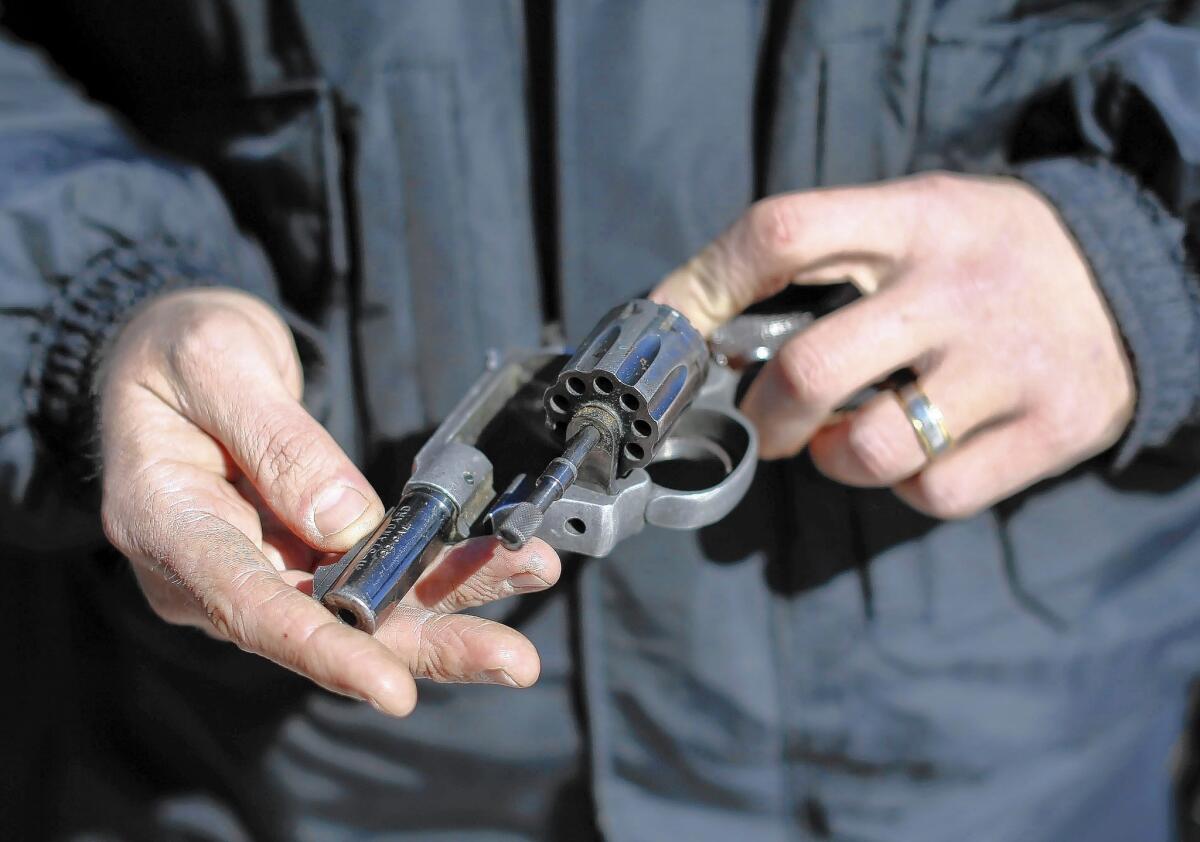Of guns and militias

- Share via
What’s a “well regulated militia”? Responding to UCLA law professor Adam Winkler’s Op-Ed article Sunday on California’s restrictive laws on carrying guns in public, Mark E. Kalmansohn — a former assistant U.S. attorney — wrote in a letter published Thursday that the National Guard fulfills that role, which means the 2nd Amendment does not guarantee an individual’s right to keep and bear arms. Kalmansohn wrote, in part:
“Winkler unabashedly asserts that ‘the text of the [2nd Amendment] guarantees not only the right to “keep” a gun ... but also to “bear,” or carry, arms.’
“Rather, the actual full text of the amendment reads: ‘A well regulated militia, being necessary to the security of a free state, the right of the people to keep and bear arms, shall not be infringed.’ The entire right to ‘keep and bear arms,’ therefore, is qualified by the predicate clause.”
Adam Winkler responds:
Many people incorrectly see the 2nd Amendment’s reference to a “well regulated militia” as proof that the amendment does not protect an individual right. As I show in my book, this misunderstands both the nature of the militia and the purpose of the Bill of Rights.
The militia was not intended by the framers to be limited to something like the National Guard. “What is the militia?” asked George Mason, one of America’s foremost founders, at Virginia’s convention to ratify the Constitution. His answer: “It is the whole people.”
Skeptical of a standing army, the founders believed our best defense came from a militia made up of ordinary people, who would bring their own arms out to fight. Indeed, a federal law in 1792 declared free male citizens of a certain age to be members of the militia and said that they were required to outfit themselves with a militarily appropriate firearm.
Even today, federal law defines the “militia of the United States” to include “all able-bodied males at least 17 years of age and … under 45 years of age.”
The Bill of Rights was designed to guarantee the rights of individuals, not states. The 1st Amendment guarantees the “right of the people peaceably to assemble, and to petition the government for a redress of grievances.” The 4th Amendment guarantees the “right of the people to be secure in their persons, houses, papers, and effects, against unreasonable searches and seizures.” These are individual rights, not rights belonging to states.
The same holds for the 2nd Amendment. If it didn’t, we’d have to believe the founders used the same “right of the people” phrase in multiple amendments adopted at the very same time to mean entirely different things.
We should not, however, ignore the “well regulated militia” language, as gun extremists often do. The 2nd Amendment uniquely recognizes the need for the armed citizenry to be subject to regulation. It nicely captures two long-standing features of American law: Individuals have a right to arms, and well-designed gun control laws are constitutionally permissible.
ALSO:
Letters: Minimum wage in the real world
Letters: Not welcome at the ‘medical home’
Letters: ’12 Years’ and the hard truth about slavery
More to Read
A cure for the common opinion
Get thought-provoking perspectives with our weekly newsletter.
You may occasionally receive promotional content from the Los Angeles Times.










